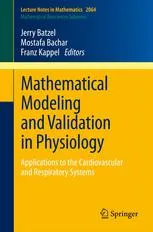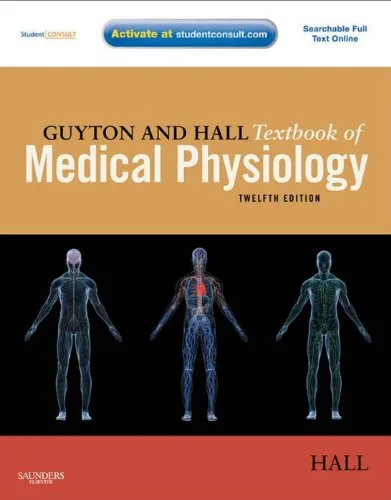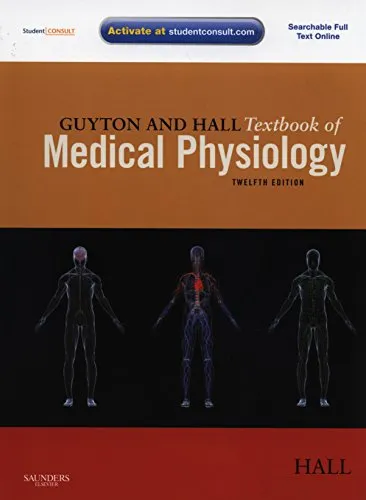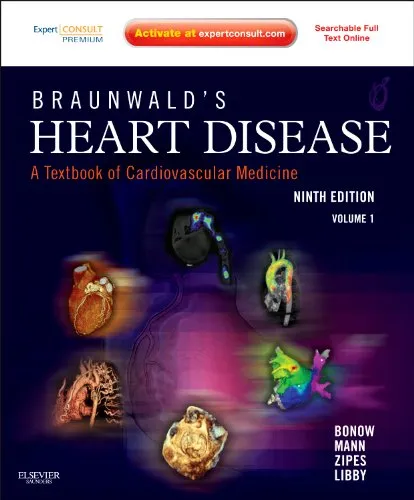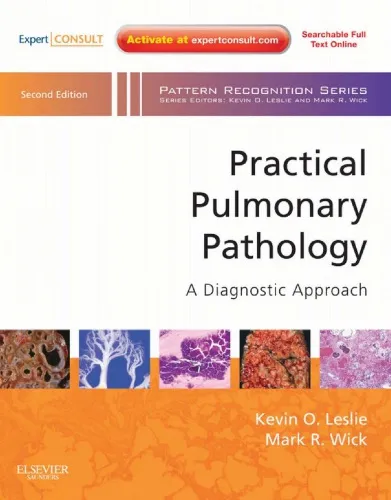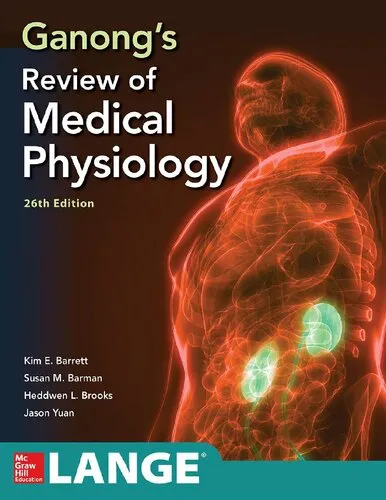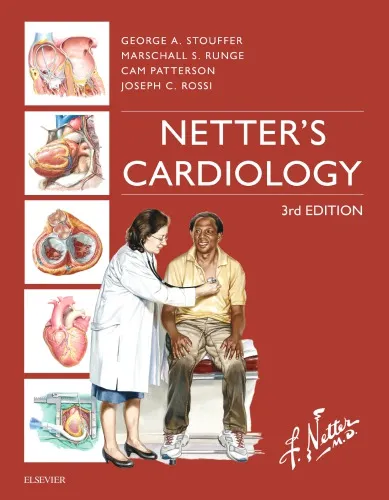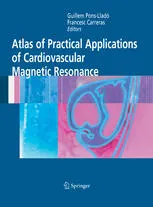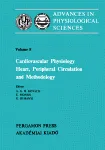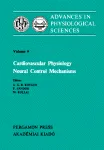Mathematical Modeling and Validation in Physiology: Applications to the Cardiovascular and Respiratory Systems
4.0
بر اساس نظر کاربران

شما میتونید سوالاتتون در باره کتاب رو از هوش مصنوعیش بعد از ورود بپرسید
هر دانلود یا پرسش از هوش مصنوعی 2 امتیاز لازم دارد، برای بدست آوردن امتیاز رایگان، به صفحه ی راهنمای امتیازات سر بزنید و یک سری کار ارزشمند انجام بدینکتاب های مرتبط:
معرفی کتاب
کتاب "Mathematical Modeling and Validation in Physiology: Applications to the Cardiovascular and Respiratory Systems" اثری جامع و علمی است که به بررسی عمقی مدلسازی ریاضی سیستمهای فیزیولوژیکی میپردازد. از زمان انتشار، این کتاب به عنوان یکی از منابع معتبر در حوزه مدلسازی ریاضی در فیزیولوژی شناخته شده است که به ویژه بر سیستمهای قلبیعروقی و تنفسی تمرکز دارد.
خلاصه کامل کتاب
این کتاب با هدف پوشش دادن جنبههای مختلف مدلسازی ریاضی در فیزیولوژی نوشته شده است. نویسندگان با استفاده از رویکردی چندوجهی، سعی در ارائه مدلی جامع برای درک بهتر فرآیندهای پیچیده فیزیولوژیکی دارند. کتاب در چند بخش اصلی تنظیم شده است که هر یک به بررسی مفهوم و کاربردهای مدلسازی در زمینههای خاصی از فیزیولوژی میپردازند.
ابتدا، کتاب به معرفی مبانی ریاضی و مفاهیم اصلی که در مدلسازی فیزیولوژیکی به کار گرفته میشوند، میپردازد. سپس، به طور دقیق به موضوع مدلسازی سیستم قلبیعروقی پرداخته و جزئیات دقیق مربوط به فرمولاسیون و تحلیل مدلهای مختلف را ارائه میدهد. علاوه بر این، سیستم تنفسی نیز به عنوان یکی دیگر از سیستمهای محوری در این کتاب مورد بررسی قرار میگیرد و مدلهای معتبر و آزمایششده ارائه میگردند.
نکات کلیدی کتاب
- معرفی دقیق مدلسازی ریاضی در فیزیولوژی و لزوم آن در درک سیستمهای بیولوژیکی.
- کاربرد مدلهای ریاضی در تحلیل و پیشبینی رفتار سیستمهای قلبیعروقی و تنفسی.
- تأکید بر روشهای اعتبارسنجی مدلها برای اطمینان از دقت و صحت آنها.
- ارائه مثالها و تمرینهای کاربردی برای کمک به درک بهتر مفاهیم نظریهای.
جملات معروف از کتاب
«مدلسازی ریاضی، پلی است بین مفاهیم نظری و کاربردی که به ما امکان میدهد تا رفتار سیستمهای بیولوژیکی پیچیده را پیشبینی کنیم.»
«وقتی مدلسازی با دقت و با استفاده از دادههای معتبر انجام شود، قدرت بیشتری برای تغییر و بهبود فرایندهای بالینی به دست میآوریم.»
چرا این کتاب اهمیت دارد؟
با توجه به پیچیدگیهای موجود در سیستمهای بیولوژیکی، فهم عمیق و دقیق مسائل فیزیولوژیکی نیازمند به کارگیری ابزارهای ریاضی و محاسباتی پیشرفته است. این کتاب با ارائه روشهای مدلسازی و اعتبارسنجی نوین، امکان درک بهتر و پیشبینی رفتار این سیستمها را فراهم میآورد. همچنین، اهمیت این کتاب در تأکید آن بر تطبیق مدلهای نظری با دادههای تجربی و بالینی نهفته است که راهنمایی کاربردی برای پژوهشگران و متخصصین فراهم مینماید.
Introduction to "Mathematical Modeling and Validation in Physiology: Applications to the Cardiovascular and Respiratory Systems"
This book serves as a comprehensive guide to the utilization of mathematical modeling in understanding physiological processes, with a keen focus on the cardiovascular and respiratory systems. The intent is to bridge the gap between theoretical models and practical, clinically relevant applications.
Detailed Summary of the Book
This book is a collaborative effort, authored and edited by Jerry J. Batzel, Mostafa Bachar, John M. Karemaker, and Franz Kappel. It delves into the application of mathematical frameworks to model physiological phenomena, specifically concentrating on the cardiovascular and respiratory systems. This work highlights the unique intersection where mathematics meets biology, offering insights into how mathematical equations can simulate complex biological processes and predict the behavior of physiological systems.
The book systematically discusses various modeling techniques, validation methods, and the integration of data to improve model reliability and accuracy. The authors provide a step-by-step analysis of model development, from the formulation of equations to the validation against experimental data. Complex concepts are elucidated with clear examples, making the book accessible to both seasoned mathematicians and physiology researchers.
Moreover, the book offers a plethora of case studies that showcase how these models can be applied in real-world scenarios, emphasizing their utility in clinical settings. The content is well-structured, progressing from fundamental principles to advanced applications, ensuring that readers can build on their knowledge progressively.
Key Takeaways
- The integration of mathematical models into physiological research provides a potent tool for predicting system behaviors and potential clinical outcomes.
- Model validation is crucial for ensuring that theoretical predictions align with real-world data, thereby enhancing model reliability.
- Collaboration across disciplines, as showcased in this book, is essential for innovative advances in physiological modeling.
Famous Quotes from the Book
"In the realm of biological systems, where complexity reigns supreme, mathematics offers a lens through which we can glimpse order and predict behavior."
"Modeling is not just about replication; it is about understanding the underlying mechanisms that drive physiological responses."
Why This Book Matters
The significance of this book lies in its practical application and multidisciplinary approach. As healthcare continues to advance, the need for robust models that can predict physiological responses and systems’ behavior in various conditions becomes paramount. This work empowers researchers, clinicians, and students to develop and refine models that will enhance diagnostic and treatment strategies.
By comprehensively addressing both the theoretical and empirical aspects of modeling, the book equips readers with the tools necessary to contribute valuable insights into the fields of cardiovascular and respiratory physiology. Moreover, this book fosters a deeper appreciation for the role of mathematics in advancing medical science, pushing the boundaries of what can be achieved through interdisciplinary collaboration.
دانلود رایگان مستقیم
شما میتونید سوالاتتون در باره کتاب رو از هوش مصنوعیش بعد از ورود بپرسید
دسترسی به کتابها از طریق پلتفرمهای قانونی و کتابخانههای عمومی نه تنها از حقوق نویسندگان و ناشران حمایت میکند، بلکه به پایداری فرهنگ کتابخوانی نیز کمک میرساند. پیش از دانلود، لحظهای به بررسی این گزینهها فکر کنید.
این کتاب رو در پلتفرم های دیگه ببینید
WorldCat به شما کمک میکنه تا کتاب ها رو در کتابخانه های سراسر دنیا پیدا کنید
امتیازها، نظرات تخصصی و صحبت ها درباره کتاب را در Goodreads ببینید
کتابهای کمیاب یا دست دوم را در AbeBooks پیدا کنید و بخرید
1482
بازدید4.0
امتیاز0
نظر98%
رضایتنظرات:
4.0
بر اساس 0 نظر کاربران
Questions & Answers
Ask questions about this book or help others by answering
No questions yet. Be the first to ask!
